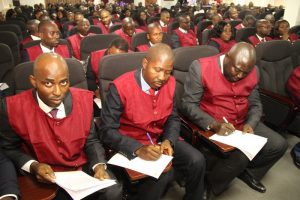
Governor Godwin Obaseki of Edo State will on Wednesday present the 2018 Appropriation Bill expected to drive growth and economic revolution in the state to the State House of Assembly for consideration.
The proposed budget, expected to drive growth in all sectors of the state, according to a statement by the state government, comprises N73,925, 548, 087.59, or 52.8% of capital vote; and N66,264,096,418.26, or 47.33% for recurrent expenditure, bringing the total to N140, 189,644,505.85.
According to Obaseki, the budget will boost industrial activities riding on the implementation of the 2017 budget, which laid the foundation for economic revolution in the state.
Reviewing the activities of the outgoing year, the governor said that, “despite the challenges posed by the economic recession, the state was able to meet its salary and pension obligations to civil servants, constructed several roads across the state and kick-started the development of the N200bn Benin Industrial Park amongst other achievements.”
Comparatively, the 2018 proposed capital vote of N73.925bn is larger in size by about N12.04bn than the 2017 figures of N61.881bn.
The governor explained that key priority areas in the proposed capital expenditure framework include social and physical infrastructure for which N46billion has been earmarked.
To boost employment generation across the state, he explained that N12,871,000,000 will be spent on economic growth and employment enablers.
He assured that through frugal allocation of the state’s resources, thousands of jobs will be created in the first phase of the Benin Industrial Park that will come on stream in 2018.
He expressed his excitement about the readiness of development partners like the World Bank and other multilateral agencies as well as the private sector to key into the institutional reform programmes and the industrialisation drive of the state.
On the revenue side, he said the various organs of government concerned with generating revenue have been repositioned to perform optimally.
Other key sectors of the state such as education, health, youth and women empowerment, social development and judiciary reform will receive their share of the budget.














